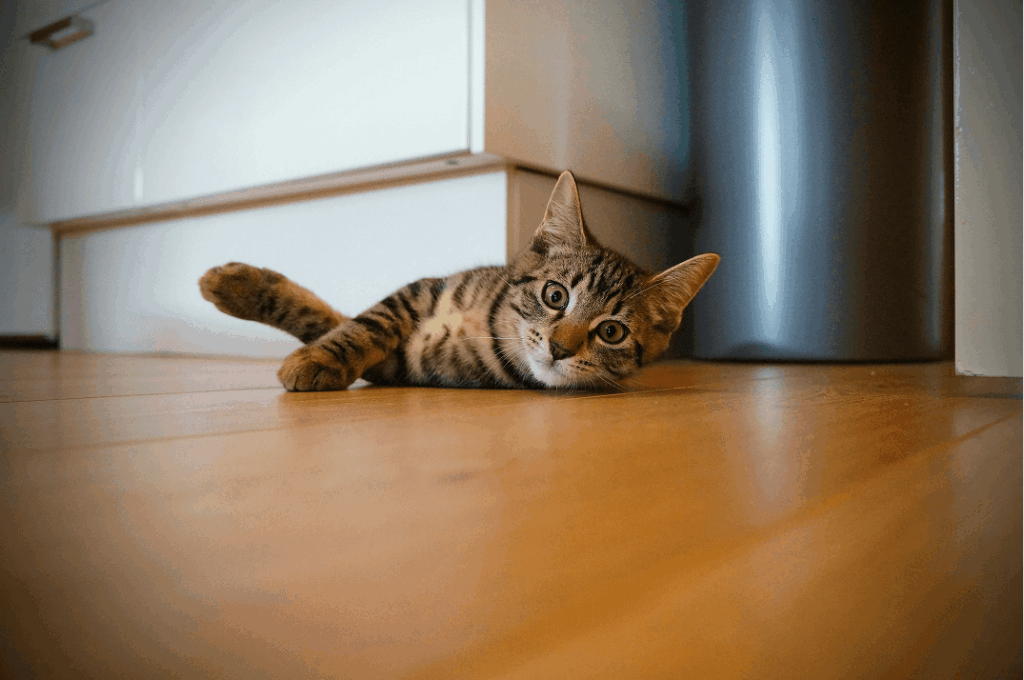Cat Vestibular Disease: What to Do if Your Cat is Acting Drunk or Dizzy
If your cat suddenly starts acting as if she’s had a few, don’t panic. A wobbly, dizzy cat isn’t necessarily an emergency, but the symptoms should be taken seriously. Here’s what to do right away if your cat is showing signs of dizziness, uncoordinated movement, or other balance issues.
0–30 Minutes: Take Note of Symptoms
When your cat begins acting dizzy or drunk-like, the first thing to do is take note of her symptoms. It may look like drunkenness or seasickness. Here are the signs to look for:
- Falling down or having trouble standing
- Difficulty walking or wobbling
- Tilting her head to one side
- Eyes darting back and forth
- Vomiting
What’s going on? These symptoms are often linked to issues with your cat’s vestibular system, the part of her brain responsible for balance and coordination. When this system is disrupted, your cat can become disoriented and unsteady.

30 Minutes–1 Hour: Watch and Call Your Vet
It’s important to note that there are several common vestibular problems experienced by cats.
- Central Vestibular Disease (CVD)
Caused by lesions or tumors in the brain. This vestibular is the most serious and difficult to treat.
- Peripheral Vestibular Disease (PVD)
Directly affects the nerves and brain and is usually caused by some sort of infection, drug reaction, or ear canal issues.
- Idiopathic Vestibular Disease (IVD)
A common, non-life-threatening condition that usually goes away on its own after a couple of days and isn’t usually indicative of other serious issues.
Of course, if you don’t know what’s causing your cat’s dizziness, call your vet right away. Be sure to let the vet know what your cat’s been eating, whether she’s been showing any other behavior or physical signs of note, or if she’s taking any new medications. Your vet may advise you to watch and wait, or she might ask you to make an appointment to have your cat evaluated.
If your cat seems to be suffering from chronic pain or muscle weakness, it could be linked to other conditions like arthritis, which affects many older cats
1–2 Hours: Follow Your Vet’s Advice
If your vet suspects IVD, they may recommend a wait-and-watch approach. While symptoms can come and go, keep an eye out for worsening symptoms, including:
- Increased vomiting or lack of appetite
- Weakness or lethargy
- Pain or discomfort
If symptoms worsen, seek veterinary care immediately. There’s no one single test that determines what’s causing your cat’s vestibular issues, but veterinarians can perform certain blood tests, urine tests, and even imaging tests like MRIs that might shed light on the cause.
You know your cat best, so if her dizziness starts to feel worrisome, don’t hesitate to take her in.
Stay in Touch
Get updates on how stem cell therapies are improving pets’ quality of life. Learn about upcoming clinical trials and new treatments designed to help your pet thrive.


